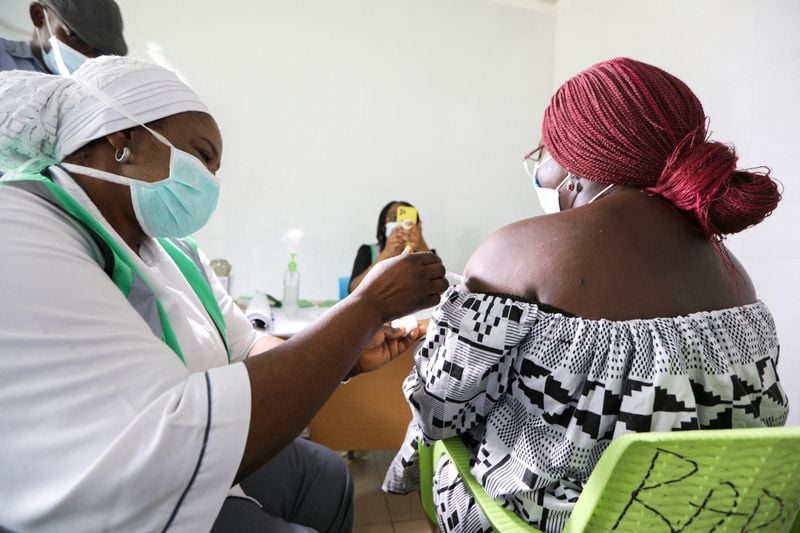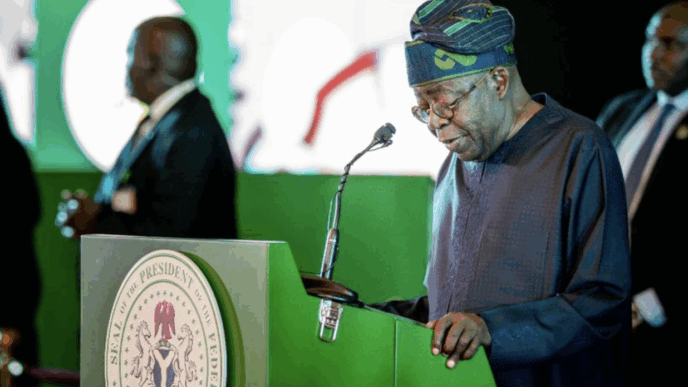FILE PHOTO: A nurse injects a vaccine to a woman at a hospital in Abuja, Nigeria March 31, 2021. REUTERS/Afolabi Sotunde/File Photo
The National Association of Nigeria Nurses and Midwives (NANNM) has denied reports that its members have suspended the nationwide strike.
The NANNM leadership met with Ali Pate, coordinating minister of health and social welfare, on Friday as part of ongoing negotiations to end the industrial action.
Speaking after the meeting, Pate reportedly said an agreement had been reached and announced that the union had called off the strike.
However, speaking with TheCable, Morakinyo-Olajide Rilwan, NANNM national chairman, said the industrial action is still on.
Advertisement
“The strike is still on until there is official communication from the association saying otherwise,” Rilwan said.
Nurses and midwives under the association commenced a warning strike on July 29 following the alleged government’s failure to address their demands.
The association had issued a 15-day ultimatum to the federal government, starting July 14, to meet the demands of its members.
Advertisement
NANNM’s demands include gazetting the nurses’ scheme of service approved by the NCE in 2016 in Minna, Niger state, implementing the national industrial arbitration court judgement of January 27, 2012; upward reviewing of professional allowance for nurses and midwives; employment of nursing personnel; and adequate provision of health facility equipment.
Other demands include the creation of a department of nursing in the federal ministry of health, inclusion of nurses in the headship of the health policy-making body, a fair representation by the association on the board, membership in federal health institutions, centralisation of internship postings for graduate nurses, and consultancy for nurses and midwives.
The association is also demanding the withdrawal of the content of the recently released circular on reviewed allowances for health workers (nurses), describing it as “grossly inadequate and discriminatory”.
Advertisement











